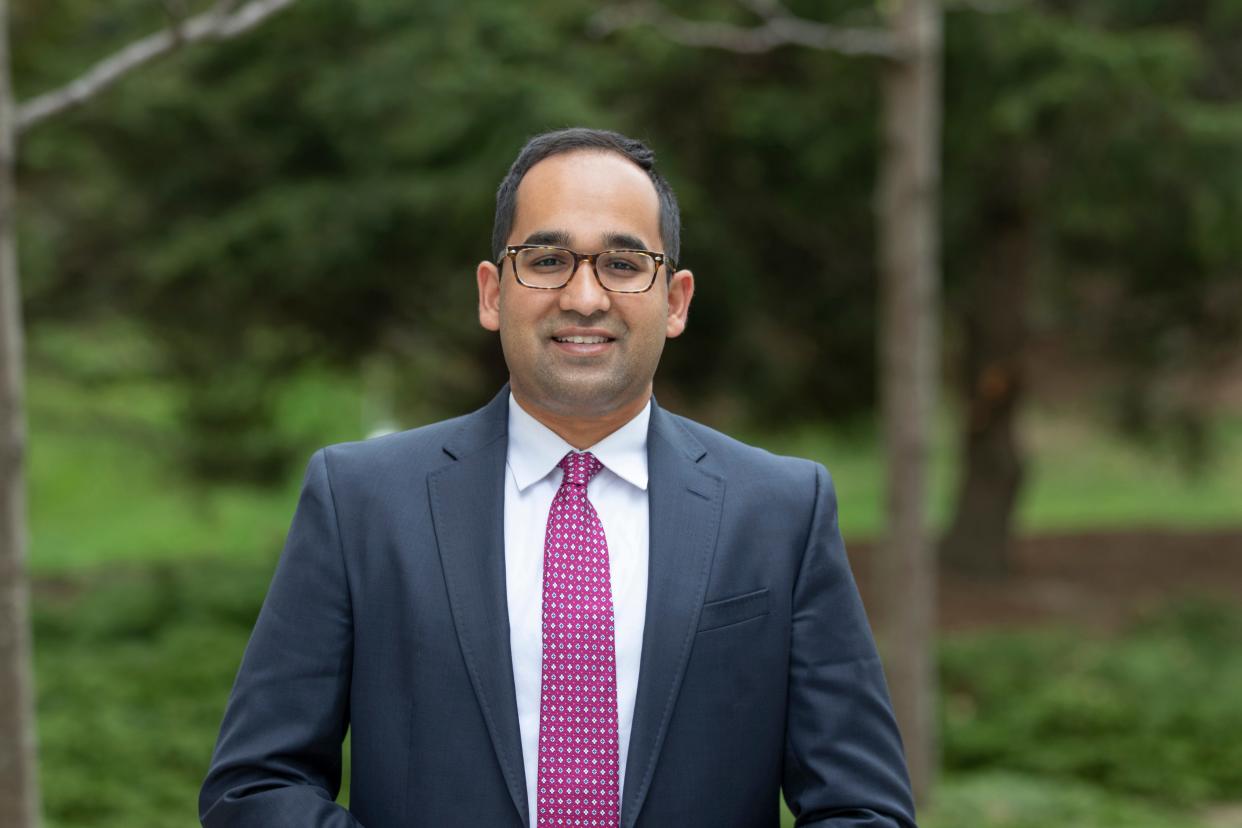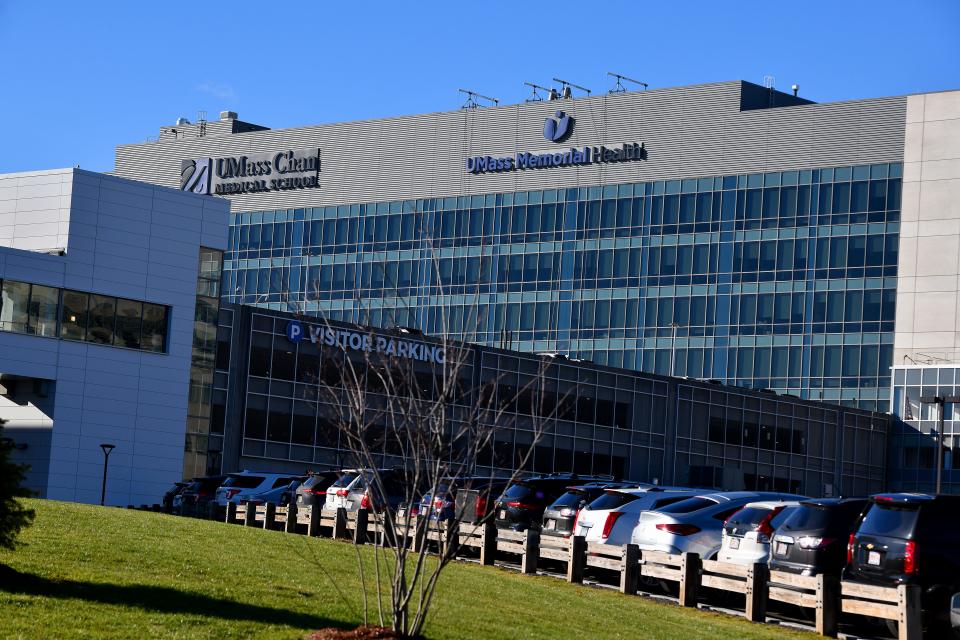Long-distance COVID: UMass Chan teams up with NIH on telehealth study

WORCESTER — What does fighting COVID-19 in Berks County, Pennsylvania, have to do with Worcester?
Plenty, according to UMass Chan Medical School.
UMass Chan is a partner in a National Institutes of Health study that is expected to roll out this month in Berks County. The focus: improving access to COVID-19 testing and treatments via telehealth, especially in underserved communities.
UMass Chan designed the program and will study the data generated, said Dr. Apurv Soni, assistant professor of medicine and co-director of the Program in Digital Medicine at UMass Chan.
More:What to know about XBB.1.5, the latest COVID-19 concern in New England
The design is based on two prior studies conducted by UMass Chan in collaboration with the National Institutes of Health.
One was “Test Us at Home,” from October 2021 to March, that studied how rapid antigen tests perform compared to PCR tests.
The findings were the basis for U.S. Food and Drug Administration guidance in August that recommended two tests administered 48 hours apart when COVID is symptomatic, and three tests over the same time period when asymptomatic.
The other was "Say Yes! COVID Test" that looked at how the tests were distributed across communities of diverse socioeconomic backgrounds. That study ran from April 2021 through August in North Carolina, Tennessee, Georgia, Michigan, Hawaii, Washington and New Hampshire.
This latest research study, called "Home Test to Treat," will bring UMass Chan $1.5 million of the total $7 million National Institutes of Health grant to conduct the study. A team of 16 UMass Chan biostatisticians, health services researchers and clinical informaticians will do a deep dive into the research findings.
Participants will enroll on an eMed website to report COVID-19 symptoms, and receive free rapid antigen tests and anti-viral treatments, including Paxlovid and Lagevrio, as well as health care consultations.
UMass Chan will crunch the data to identify positive outcomes in order to make improvements to the Home Test to Treat model that will not only include 8,000 participants in Berks County but also an expected 100,000 nationwide by the end of this year.
Limiting COVID-19 spread and preventing severe illness, hospitalization or death are the goals.
Will Worcester participate?
The short answer is no, Soni said, but that could possibly change depending on how COVID-19 impacts the city. Worcester is currently classified as having a “high” level of COVID-19.
“Worcester cases are high, but not as high other parts of the country,” explained Soni as to why Worcester County is not initially targeted as one of the counties identified to participate in the study.
The county had 137.9 known cases per 100,000 people, as of the most recent CDC reporting Friday. That represents a nearly 28% increase compared to the previous week.
Worcester reported four additional deaths in its most recent weekly COVID-19 report Friday, bringing the city’s total to 567 since the pandemic started in March 2020.
A total of 307 new cases were reported in the city, compared to 259 in the prior week. The seven-day average of weekly COVID cases stands at 43.9 in Worcester, compared to 28 Dec. 4.
How are counties selected for the study?
Three criteria come into play, said Soni.
They include a county's level of testing and treatment availability, how fast the virus is spreading and a county’s vulnerability to the virus, based on a so-called social vulnerability index that uses U.S. Census Bureau data.

So why should Worcester care, especially since Berks County is more than 300 miles away? Soni described the effort as a “source of pride” for Worcester because UMass Chan developed the research model that serves as the backbone of the study.
In addition, Soni stated telehealth is critical to address disparities in health care, highlighted during the COVID-19 pandemic. Some people don’t have transportation access to doctors or can't afford to take time off from work, and care delivered remotely in the home can help prevent the spread of viral infections, for patients and health care staff.
That point hits home because Massachusetts is experiencing a severe shortage in hospital workers, a total of 19,000 unfilled jobs statewide, according to a recent report by the Massachusetts Health and Hospital Association. Limiting in-person interactions via telehealth could reduce sickness, a plus when Massachusetts can ill afford to cut into its labor force.
Cost-cutting?
When asked if this latest telehealth study is simply a cost-cutting measure to benefit the bottom lines of health care institutions, Soni said, “You’re not completely incorrect. But it’s more than that.”
He said viral infections including COVID and flu can, in some cases, be treated remotely and that spares patients and the health care system from rising numbers of infections and lost productivity.
“We now have a lot of technology that allows telehealth care,” said Soni. “It provides an avenue to deliver care in the best way possible, for viral infections and other urgent care problems. It’s not just overhead (costs). It’s also a risk to patients and health care staff (from in-person visits).”
Soni also noted new COVID variants keep developing. There's also rising rates of other respiratory illnesses, so telehealth is an important part of the diagnosis and treatment equation, especially in underserved communities.
"Having the infrastructure and proven know-how at scale through telehealth services is important, given how many future pandemics and future seasonal crises seem to be going through more and more," he said.
Contact Henry Schwan at henry.schwan@telegram.com. Follow him on Twitter @henrytelegram
This article originally appeared on Telegram & Gazette: UMass Chan Medical School a partner in NIH COVID telehealth study

